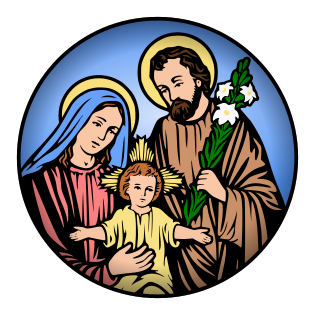A few weeks ago, on Pentecost, I spoke about language – defined as a method of human communication. I spoke about the Sacraments of the Church as God’s method of communicating to us … but here’s another question – how do we communicate God to others? Isn’t that what Jesus is saying in the Gospel – what I say to you, you say to others … what you hear whispered to you, proclaim to others … And I think this all hinges on one word – acknowledge … “whoever acknowledges me …” Other translations render it as “confess” – both carrying the meaning of “formal admission.” I find, however, that this is not the best translation of the original Greek … it doesn’t quite capture the original… the Greek term used here is “homologos” – meaning: ‘of the same word’ … And if you were to turn to the opening lines of St. John’s Gospel, you find: “In the beginning was the Word, and the Word was with God and the Word was God … and the Word became flesh and dwelt among us.” Lets understand something – fundamental to Christianity is this – the Divine Word, who is one in being, of the same substance, with the Father from all eternity is Jesus Christ … the humanity of Christ is God made visible … So, what exactly is Jesus getting at … Being of the same word essentially means being one with Christ Himself … and then will the Father “confess” us or “acknowledge” us – because then He will see the Word in us … He will see Christ in us, His Divine Son.
The real question then becomes – what does that look like? What does “being of the same word” look in like in this life? And since as human beings we are not always going to get it right, well that makes it all the more confusing and difficult … I propose however, that it is entirely possible… It means this: that as Catholics we ought not to fear life or death – as Jesus clearly states, that we face difficulties – situations and people – with joy and patience, confront obstacles with that demand effort with sacrifice, endure illnesses, remain calm in the face of uncertainty … this is how God wants us to live. As such there is no place for fear, anxiety or worry and especially there is no room for darkness because if sparrows and other animals are cared for with so great affection by God, why do we think He is not looking out for us collectively and individually? And what does that say to others? How does that communicate God – it shows our belief in Him … and that belief is a manifestation of an inner trust that comes from deeply held friendship with God.
The point being that in language its not just about words … and in this case in the Gospel, at least the way I read it … “acknowledge” or to “confess” isn’t always about words either … it is about being one with the Word of God – Jesus Christ. It is about bearing Him in our souls … being not just a reflection of goodness but identified with Goodness itself … Do you remember the quote I read you last weekend on Corpus Christi from Bishop Barron? This is exactly what he means – becoming a bearer of the power that is received in Holy Communion … we become Him – even amid all our faults and failures … all of which are forgiven in sacramental confession – people can see that … our identity in Christ is evident in our reach for God, in how think, speak and act … in the way we strive for virtue, seek holiness… this is not the path of mediocrity …This is how we communicate God to others and it becomes for us the path of sanctity.
